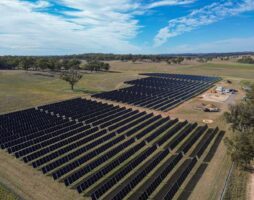
Climate change is above all a question of public health. Although spared from famine and civil disruption that will afflict other countries, Australians increasingly will be exposed to the effects of extreme weather patterns consequent to our heating climate, and they will as a result suffer more ill health requiring attention from GPs and hospitals.
Heat waves lead to heat stroke, increase heart attacks, cause dehydration and threaten those with renal impairment; fires threaten life in so many ways; floods and wild storms can cause drownings and other injuries; and all these events lead to distress and affect long-term mental well-being. Children especially, but also adults, can suffer from sleep disturbances, aggressive behaviour, sadness, substance abuse and post-traumatic stress disorder. Children are also vulnerable to extreme weather events because such events interrupt their safety, their sense of security and their access to the outside world. Hotter days will bring more asthma, and, in some localities, more exposure to local mosquito-born infectious diseases. This cannot be what we want for our children.
Disturbingly, our health system infrastructure and resources can also be affected by more severe and frequent extreme weather events, thus potentially limiting their ability to provide care when it is needed most. For example, in the heat wave before the Black Saturday bushfires, 25 per cent of all hospitals had problems with their air-conditioning or cooling systems.
Political leaders, by ignoring the impacts of global warming on health, have hindered public discourse and concerted action on climate change despite the urgency to act. The failure to include health costs distorts the costs to families and communities, as well as the bottom line on already-stretched health budgets. What is already well known by economists, for example, is that the health costs of coal and fossil fuel burning increase societal costs of electricity (double or more by some estimates) – surely an incentive to escape from the fossil fuel addiction. The Morwell coalmine fire in Victoria would be another route by which society is damaged by use of fossil fuels.
As a medical organisation, Doctors for the Environment Australia is frustrated by the dismal failure of governments and our senior leaders to include the health risks and costs in the numerous discussions on climate change.
Last week, DEA presented its concerns in a submission to the Climate Change Authority, which is reviewing whether Australia should have an emissions trading scheme, and what action Australia should take to implement outcomes agreed at the Paris climate change meeting last year. We argued that by being required to focus on the economic issues of transitioning away from fossil fuels, the CCA will be unable to consider the true costs to society of inadequate action to mitigate change.
Doctors have a duty of care to the health of the community, and are in the front-line in responding to the harms from the impacts of climate change. Many medical organisations such as the Australian Medical Association, Royal Australasian College of Physicians and the World Medical Association have added their weight to DEA in raising awareness of the health consequences of climate change.
One of the best reviews of climate change and health has been published recently in the prestigious international medical journal the Lancet with support of the Rockefeller Foundation. It states: ‘put simply, planetary health is the health of human civilisation and the state of the natural systems on which it depends‘. This document should be essential reading for all involved in the climate change debate, as it is very positive about the potential for us to change behaviour and capitalise on the opportunities for new industries and innovation.
In fact, the International Renewable Energy Agency (IRENA) has just provided the first ever report looking at the global macroeconomic impacts of greater use of renewable energy. It’s key finding is that doubling the global share of renewable energy by 2030 would lead to a 1.1% increase in global GDP. That equates to USD 1.3 trillion – more than the combined economies of Chile, South Africa and Switzerland.
There are specific findings of relevance for Australia:
- In the first IRENA case for doubling the share of renewables several countries are notable for having a large positive impact on GDP due to higher investment, including Australia (1.7%).
- The highest welfare improvements are observed in countries such as India, Ukraine, the US, Australia, Indonesia, South Africa, China and Japan. This is primarily a response to the reduced health impact of air pollution and greenhouse gas emissions reductions. Solar PV and wind withdraw up to 200 times less water than conventional power generation options including coal, natural gas and nuclear.
As in the case against tobacco and asbestos, public health must always trump private profits. We urge governments to put health front and centre, placing Australia on the course of effective climate change mitigation, enabling Australia to be an example of the highest ethical behaviour.







